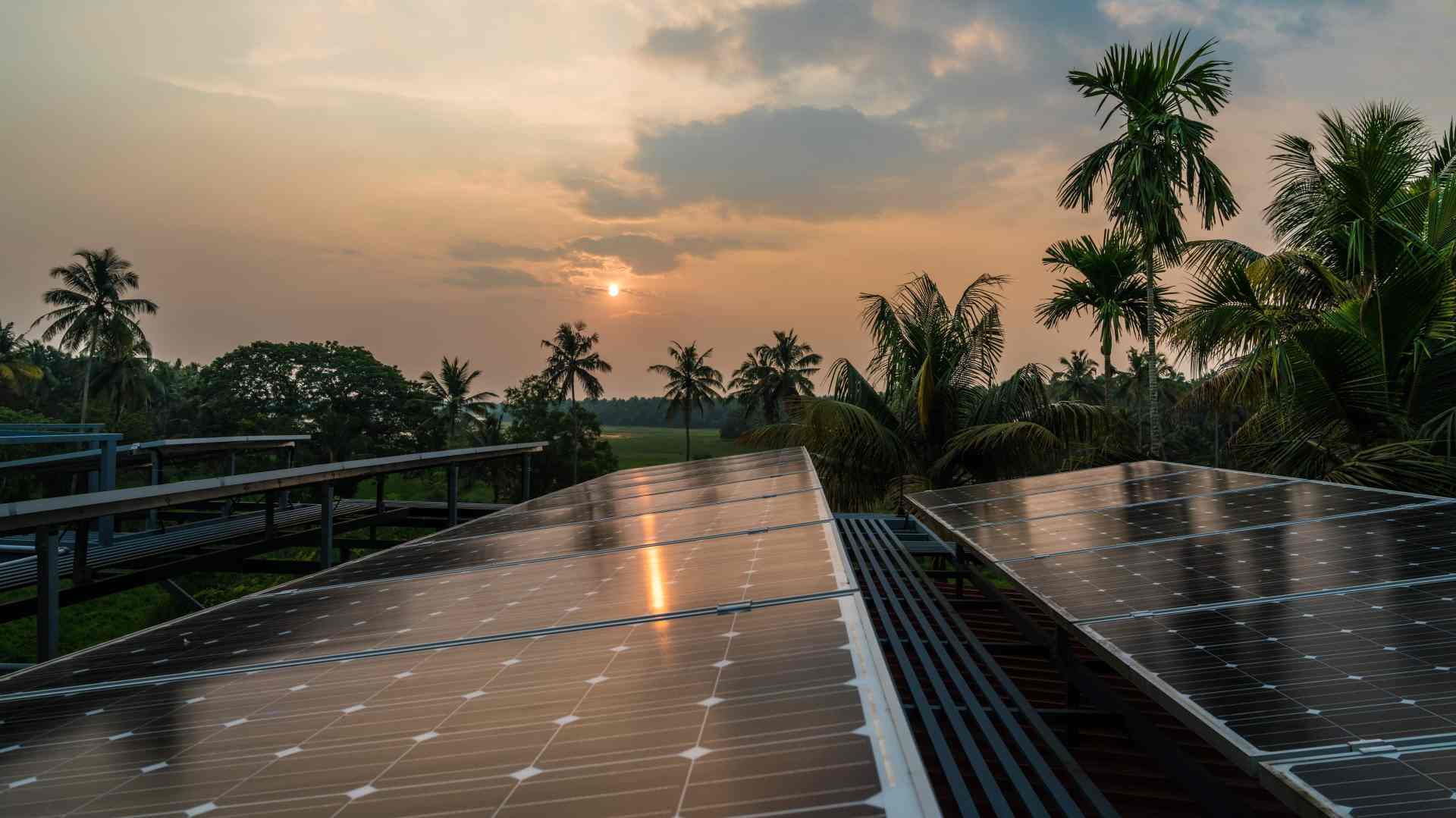The best environmentally friendly programs solve two problems at once — which is exactly what India is doing by placing solar panels over its water canals.
After 2015's Paris Agreement, 196 governments around the globe began developing clean energy sources — resources like wind and solar power that produce electricity without generating heat-trapping gases that warm up the earth.
Erik Solheim, former executive director of the United Nations Environment Programme, tweeted about one of these efforts.
India 🇮🇳 is lining their canals with solarpower. It provides cleanenergy and stops water evaporation at the same time. Bravo, India. Bravo Gujarat! pic.twitter.com/t2fyjn6TPh
— Erik Solheim (@ErikSolheim) December 1, 2022
The tweet shows two photos of large banks of solar panels running over canals in the Indian state of Gujarat.
As the BBC reported in 2020, these panels are part of a program to switch India from dirty energy sources like coal (about 72% of the country's electricity in 2018 to 2019) to clean sources like solar. This move would significantly reduce the amount of heat-trapping gases that India produces.
"Bravo, India. Bravo Gujarat!" Solheim says.
Perk up the winter blues with natural, hemp-derived gummies Camino's hemp-derived gummies naturally support balance and recovery without disrupting your routine, so you can enjoy reliable, consistent dosing without guesswork or habit-forming ingredients. Flavors like sparkling pear for social events and tropical-burst for recovery deliver a sophisticated, elevated taste experience — and orchard peach for balance offers everyday support for managing stress while staying clear-headed and elevated.
Learn more → |
Placing the solar panels over canals helps conserve space, which the BBC says is at a premium. "India's high population density also puts pressure on the land, with an average of [1,202 people per square mile]," it reports.
This placement is also a brilliant move that benefits both energy production and water conservation at the same time. The panels shade the water, cooling it down to reduce evaporation, so more water reaches its destination. Meanwhile, the BBC says, "The running water helps the panels to remain cool, which increases their efficiency by at least 2.5-5%." France has developed a similar program for using solar panels to shade parking lots — generating electricity, saving space, and cooling down the area underneath.
Innovative moves like these help produce more affordable electricity for residents, potentially lowering energy costs. They also help slow down rising temperatures worldwide, which are largely due to heat-trapping gases produced by human activities, as the UN explains.
Many commenters were hopeful about the change. "It can also happen in Odisha," says one, while another adds, "An amazing innovation. This should be adopted worldwide."
TCD Picks » Upway Spotlight
💡Upway makes it easy to find discounts of up to 60% on premium e-bike brands
Want more? Follow The Cool Down on Instagram and join our Weekly Newsletter for cool stories and easy tips that save you money, time, and our planet.














